Reproduced from December 1967-68 issue of The Vedanta Kesari.
My first meeting with Swami Vivekananda took place in 1899 when he came to America on his second visit. He had come from India, via England. The Vedanta Society of New York had arranged a welcome meeting soon after his arrival. There were just a few guests at the function, his old friends and members of the Vedanta Society. As I entered the room I saw Swamiji seated on the floor, Indian fashion. He was talking and joking with old friends he had known on his first visit. When I was introduced to him, I noticed his classical features, especially his expressive eyes. Later in the evening when he was moving among the guests I got my first real impression of him. I noticed his majestic bearing and grace of movement, and I felt that I was in the presence of a great personality, a man of strength and will-power. I thought, ‘Here is a man who knows what he is about.’
Some of the guests made short speeches and then Swamiji spoke. He said that he was happy to be back in a land of the free, to be with us, that he had come to learn as well as to teach, that he would be always at our service to help us in our spiritual life, that religion meant realization and that we must experience it. God has to be perceived, he told us. In Him there is no diversity and one who perceives many goes from death to death. When the desires of the heart are cut asunder then the mortal becomes immortal, then one becomes Brahman. Religion is not mere dogma or belief or much learning. One has to imbibe the gist of the scriptures. And then chanting Siva, Siva, he ended his talk, and the meeting dispersed.
After a few days of rest Swami began to hold classes on Vedanta. I had been so much impressed by him even at the first meeting that I became a regular attendant of these classes. We were only a small group of 20 or 30, and everything was informal. The Swami would open the class with a chant in Sanskrit, and give a short talk on Vedanta, and then would invite questions.
In one of these classes Swamiji spoke of the divinity of man. He said that behind the body and mind stands the Atman, ever free, our real self. It is not merely that God dwells in our heart, we are God. He told us the story of Swetaketu. Someone asked: ‘Swamiji, we all know that we are sinners, weak and frail human beings, how can you reconcile this with your assertion that we are God?’ Swamiji said in reply, ‘Sin is ignorance, bring in the light of truth, and sin and ignorance will fly away.’
Then someone asked ‘Why don’t we see God?’ and he replied, ‘Because you talk in vain. If your thoughts are fixed on Atman as they now are on the things of this world, then you will be free from bondage, then you will know Brahman. Don’t dwell on the weaker side of your nature, but assert the Truth — speak, think, live Truth, then you will be holy, pure and strong. Your scripture says: Know ye not that ye are gods ? We now walk in the midst of a dream, half asleep, half awake, passing our lives in a haze. This is the universe, this is Maya. Wake up, tear the veil of bondage, be free. Freedom, mukti, is your goal.’
Wrong ideas were sometimes expressed by those who attended the classes. But Swamiji with great patience tried to correct us. One evening when someone said : ‘But, Swamiji, our missionaries tell us so,’ he became indignant. ‘Who are your missionaries?’ he demanded. ‘Steeped in ignorance they want to enlighten us. They don’t understand their own religion, but come to criticize and ridicule ours. But, thank God, there are some exceptions. I have come not to take away your Bible, but to give you a better understanding. I have not come to rob you of Jesus but to bring you closer to Jesus, we too revere and worship Jesus. Vedanta has no axe to grind. It gives freedom to everyone to follow his own chosen path.’
Swami Vivekananda knew human nature quite well, he could look deep into the human mind. He could by a glance know one’s innermost thoughts. What was weak he would brush aside. And he would bring out what was the best in us. Weaknesses, he would say, are common to all. Virtues are individual. He held that a pure character was the only solid foundation on which religion could stand and be lasting. Be a man first, he used to tell us, and then become a God.
Swami Vivekananda was often the guest of very distinguished families, of people of high culture and standing in society, and then he came in contact with the best American brains. Scientists, philosophers, psychologists and authors came and exchanged ideas with him.
He was astonishingly well-informed on a great variety of subjects. He could meet all men on their own ground. Men of distinction were fascinated by his brilliant intellect and far- reaching knowledge. A scientist told him ‘I come to your lectures because they fit in with our latest discoveries.’ A psychologist said, ‘Swamiji, we are just beginning to explore the mind. Your Raja-yoga is a revelation to us.’
All his life the Swami was guided by a great power. That power was his divine master, Bhagavan Sri Ramakrishna. That power had brought him to earth from a higher plane, had moulded his character, had taught him and had given him God-vision. He knew that he was an instrument used by his Master; that it was his Master’s will and strength and wisdom that acted through him. He said: ‘If there is anything I have done that is helpful to the world, it is all His. If I have stumbled, made mistakes, it is all mine.’ The Swami has been called an orator by divine right. He was also a world-teacher by divine right. Well may India be proud to have produced such a man.
Source : Vedanta Kesari, March, 2017

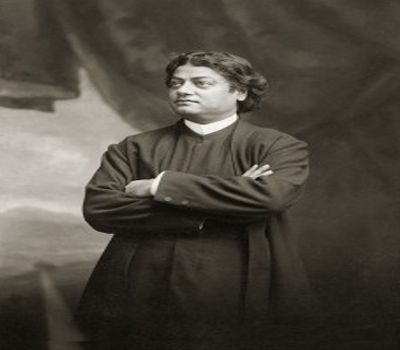
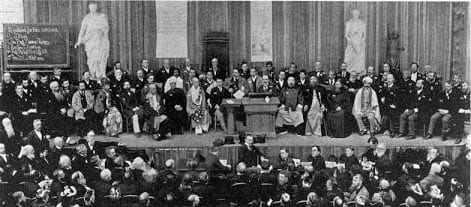
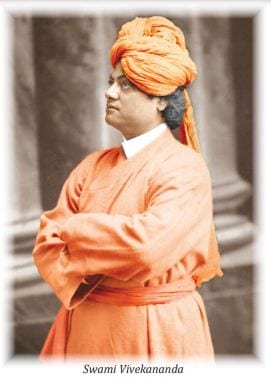
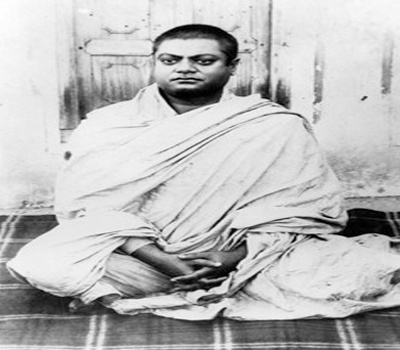

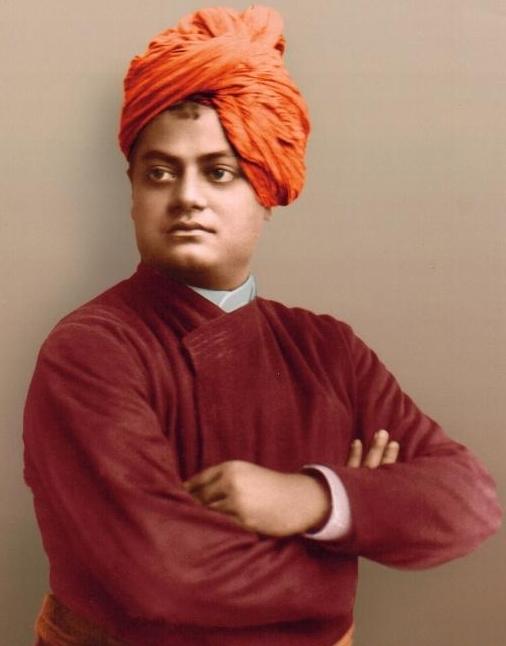
Leave A Comment